
18/11/17
5 min read
I hear and I forget; I see and I remember; I do and I understand
The Nuffield Foundation has supported innovation in teaching and learning for over fifty years. The international reputation of Nuffield projects is built on the science and maths projects which went round the world and were translated into many languages. There have also been projects in languages, the humanities, economics & business, and design & technology.
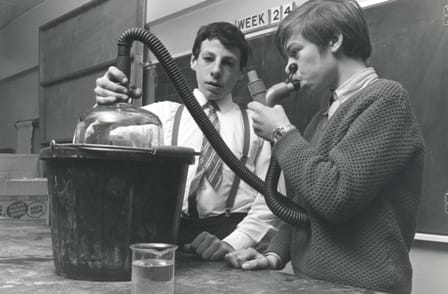
Lord Nuffield set up his Foundation to contribute the ‘advancement of social well-being’, especially through research and innovation, and this developed to include education. The independence of the Nuffield Foundation and its financial resources has allowed it to innovate while being very practical, so that its work influences both policy and practice. Throughout its history the Foundation has been able to bring together, on neutral ground, key people with disparate interests in an area of concern so that they can collaborate in response to perceived challenges.
The Nuffield Foundation strategy has been to find people judged to be the best leaders and then give them the resources to build a team, to develop materials, and then to try them out in schools. As a result the methods adopted by the many projects have reflected the personalities and interests of the organisers.
Developments were based on respect for teachers and teaching, and an essential feature was that the approach and the resources were trialled. The curriculum developers were generally former teachers, and they revised the scheme and draft resources in the light of feedback from teachers and classroom observation by researchers.
How it all began
In the decade of the 1960s, the Nuffield Foundation spent well over £1m at 1960s prices on curriculum innovation (equivalent to about £30m today). In the early 1960s the work was run directly by the Nuffield Foundation, with the three project organisers reporting to the Nuffield Foundation director Leslie Farrer -Brown. This was the era when projects had large teams and enjoyed relatively generous timetables.
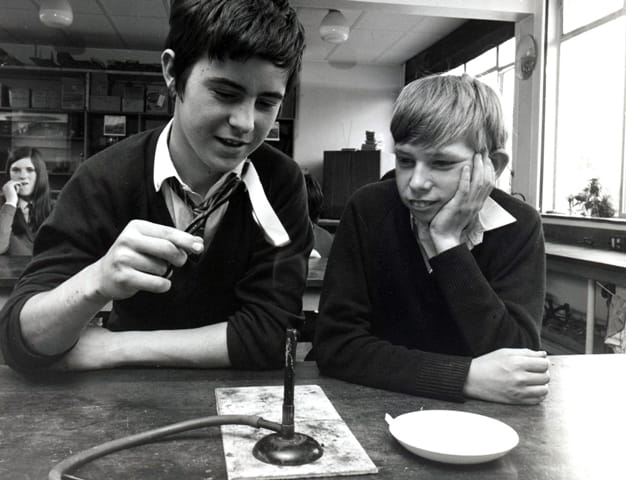
Nuffield at Chelsea College
In 1966 the Nuffield Science Teaching Project staff moved to Chelsea College and the publications unit moved to a new home. William Anderson was the publications manager. The Nuffield Foundation handed over the sales income to the College to provide for revisions and promote new work. Kevin Keohane was the Director of the Chelsea College Centre for Science Education in which the teams were based.
The advantage of this move was that Nuffield teams, the science ones in particular, were more closely associated with researchers and teacher trainers. There was research into the dissemination of Nuffield projects and evaluations of their impact in schools. The findings underpinned the major revisions of the O-level schemes.
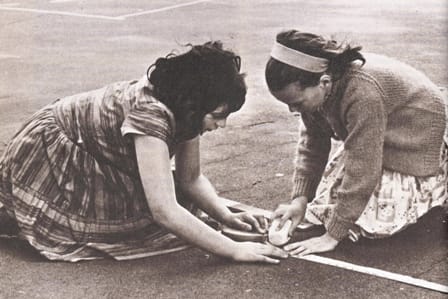
The emergence of support and aftercare
During the Chelsea period (1966 to 1993) the focus was on development of new projects and revision of the publications for existing ones, not on the maintenance of projects in a steady state. The largest component of the Nuffield Science Teaching Project was the publications department which turned into the heart of the Nuffield-Chelsea Curriculum Trust.
Some projects took on a life of their own. Users (teachers, trainers and researchers) began to take ownership of the courses and to develop new models for support and aftercare.
Nuffield-Chelsea Curriculum Trust
In the late 1970s the independence from the Nuffield Foundation was formalised by setting up the Nuffield-Chelsea Curriculum Trust (NCCT). The educational adviser was Paul Black.
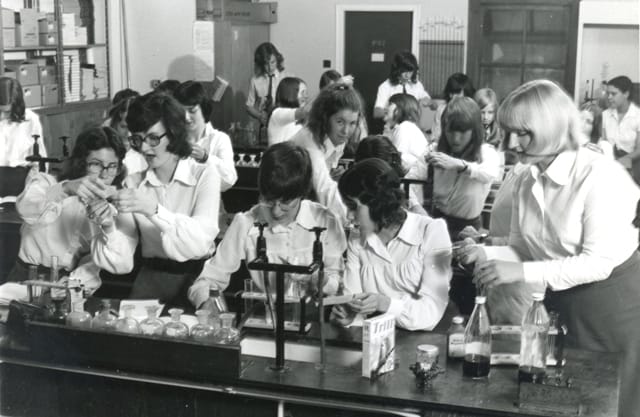
The publishing models were varied and innovative – the publications unit took advantage of new technologies, starting with golf-ball type-setters and off-set litho printing, and moving to Apple Macs. From 1987 the publications manager was Dieter Pevsner. As royalty income from the early publications declined, the unit became increasingly dependent on publishers’ advances and NCCT became focussed on publications.Nuffield Chemistry 1975
Back to the Nuffield Foundation
In the late 1980s the Nuffield Foundation once again returned to direct involvement in curriculum development. It had become clear that the commercial returns from innovative curriculum development could not sustain an independent unit, and in the early 1990s the Nuffield-Chelsea Curriculum Trust ceased to operate.
Guided by Anthony Tomei (then Nuffield assistant director with responsible for education work) the Nuffield Foundation accepted once again the case for making large grants for innovative curriculum projects. He reasserted the view that successful interventions had to start with good people with good ideas.

Nuffield Curriculum Centre
The Nuffield in-house projects grew fast and developed into the Nuffield Curriculum Centre. Andrew Hunt became the Centre director. Part of the reason for setting up the new Centre was the way that, in the early 1990s, the Government was dismantling the existing structures for dissemination, in-service training and support. The focus for initial teacher training was moving from universities to schools, while the trainers in higher education were being judged more by their research than their involvement in curriculum innovation.
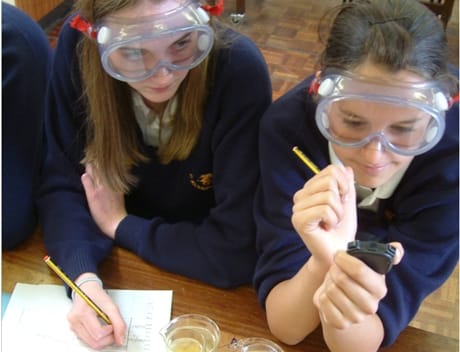
Aftercare and support
Up to the late 1980s, teacher trainers in higher education and local authority advisers provided training and support for Nuffield projects as part of their own work. HMI also offered high-quality in-service training, and there was an era of twenty-day courses for primary teachers which brought about a step-change in the expertise and confidence of primary science coordinators. However the era in which participation in curriculum development was seen to make a substantial contribution to professional development was coming to an end.
Part of the brief for the Nuffield Curriculum Centre was to take the lead in promoting the dissemination and implementation of new projects while providing sustained support for existing courses – including the courses inherited from the Nuffield Chelsea Curriculum Trust. This was particularly important at a time when some of the national provision of training was being dismantled or reorganised.
However some projects had taken on a life of their own with support and aftercare passing from the project teams to the users. The Nuffield Curriculum Centre increasingly provided teacher support via Nuffield websites rather than providing it directly.
Since 1962, the Foundation has supported some 60 major curriculum projects and countless smaller ones.
Further reading
Professor Arthur Lucas, former Professor of Science Curriculum Studies, later Principal of King’s College London has provided a Nuffield Science Teaching Project bibliography (Word ).
Materials for many of our curriculum projects are available to download from the National STEM Centre eLibrary. Pages about individual projects have links to the relevant sections of the STEM Centre website.
Books about curriculum development at Nuffield
Social Pressures and Curriculum Innovation: A Study of the Nuffield Foundation Science Teaching Project by Mary Waring
Published by Methuen young books (Jan 1979) Preview this book on Google books
ISBN-10: 0416707904
ISBN-13: 978-0416707908
Understanding Practice in Primary Science by Patrica Murphy
Using evidence from Nuffield Foundation research, this book informs teachers and other educators of the consequences that different teaching approaches and pedagogic choices have on learning. Available to purchase from Open University Press
ISBN: 9780335213139
ISBN10: 0335213138
Challenge and change: a history of the Nuffield A-level Physics Project by Keith Fuller and David Malvern
Published by the Institute of Education, University of Reading November 2010. Available to download in full from the University of Reading Central Archive (CentAUR)
All curriculum projects
Science projects for 7- to 11-year-oldsScience projects for 13- to 16-year-olds
Science projects for 16- to 19-year-olds
Modern Languages
Mathematics
Literacy
Humanities
Home Economics
History
Extended Project Qualification
Economics and Business
Design and Technology
Citizenship
Classics
















































